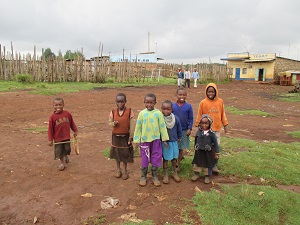By Lisa Rückwardt
Staff Writer
During the elections in June 2013, the new president of Kenya, Uhuru Kenyatta promised the provision of laptops for each primary school student. He was highly criticized by various newspapers and by the Kenyan population for such a costly and unreasonable project. But what exactly does Kenya and its inhabitants want for their education system? A more elusive question is what is Kenyatta aiming for.
There a two main points of criticism for Kenyatta’s plan: For starters, there are not enough well educated teachers in the field of IT, and more importantly, there is the issue of inequality: remote areas do not even have a water pipe system (in fact no water at all) or enough food, sanitary facilities or health care. Having electricity is not on top of their list of the things they need most.
A more efficient way of introducing computers and the Internet could have been the provision of computer labs for the cities and villages, which schools can book and which provide for educated staff. Instead of focusing on the medium (e-learning), however, the ministry of education should pay more attention to the how and what of teaching.
For example, in remote areas such as Pokot, what is the sense behind offering an education in technology or chemistry when there is no electricity and no money for a laboratory or chemicals? Furthermore, what sense could it have considering that there are no existing jobs that would require such an education?
The “Guardian” summarizes that technology cannot be the solution to the problems the country faces. I have the feeling that Kenya is jumping ahead to being a hi-tech consumer society, whereas the population and the circumstances are not nearly ready for this “modernity”.
One observation you can make on the streets of bigger cities but also in the villages is that a lot of citizens have mobile phones. It is affordable to have a mobile phone but the history of communicating via telephones, the fax machine, or any other advanced technological devices is missing. There is online banking, but the majority does not even have an Internet connection, let alone money.

A fast moving development can also be seen in schools, which still have to be built in many areas. The learning process in the education system has been much shorter than in European countries for example, where education dates back to the ancient Greeks, and it has been introduced and influenced by the British during the colonial period.
In general, external influences and ideas can be useful and beneficial to development. The government on the other hand should bear in mind the different situations of the involved countries and ideas and solutions taken from other countries should be adequately implemented. Tuition fees for high schools, for example, are detrimental for the creation of equal access to education. In countries where poor members of society receive financial aid, children can still enter and pay for high school. With a high poverty rate, and extremely low financial aid from the government, poor families in Kenya rely on the help of organizations that cannot afford paying for all the children.
It is questionable whether it is even desirable for a country in Africa to “modernize” in the same manner as “more developed” countries, which also experiences its share of problems. Rather than working on the image of Kenya as a technological center, the government should think more about the extent to which technology can actually help the country overcome the enormous inequality in the quality of life for its citizen.
It is fairly easy to criticize Kenyatta, especially due to the accusations of the International Criminal Court against him, but I can only hope for the country’s sake that he chooses a path that leads Kenya out of extreme poverty and inequality – although I do doubt that this can be achieved by donating laptops to every child.
Lisa Rückwardt, class of 2015, is a Law and Psychology major from Dortmund, Germany.

